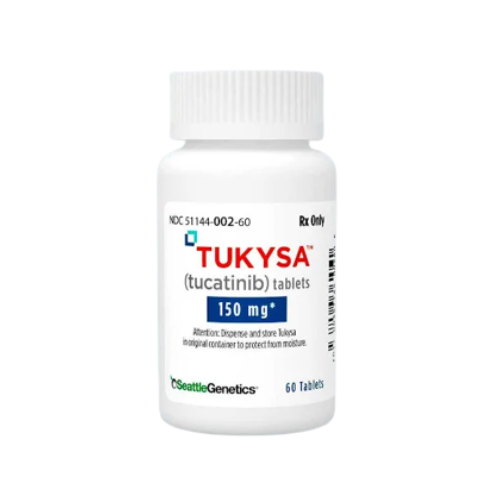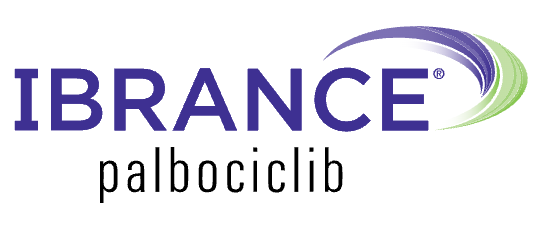Introduction:

In the world of cancer treatment, Tukysa brings new hope to patients facing specific types of cancer. Created with great care and approved by the FDA, it is changing the way we treat HER2-positive breast cancer and RAS wild-type HER2-positive colorectal cancer, offering better options for those in need. This comprehensive blog explores the details of Tukysa, from its manufacturing to its mechanism, side effects, and vital safety information.
What is Tukysa?
Tukysa (Tucatinib) is an antineoplastic which belongs to the class of tyrosine kinase inhibitors (TKIs). It is used in the treatment of specific cancers. These medications inhibit the activity of enzymes called tyrosine kinases that play a crucial role in cancer cell growth. Tukysa is primarily used to treat HER2-positive breast cancer, targeting the overactive signaling pathways associated with this cancer subtype to slow its progression.
FDA Approval and Manufacturer:
Tukysa has received the FDA’s approval for usage in HER2-positive breast cancer and RAS wild-type HER2-positive colorectal cancer. This medication results from extensive research and is manufactured by Seagen Inc., a trusted name in the pharmaceutical industry.
Indication Of Tukysa
Tukysa is a prescription medication designed for adult patients dealing with specific cancers.
- It is indicated for HER2-positive breast cancer when the cancer has metastasized, or surgery is not an option, and the patient has previously received anti-HER2 treatments.
- Tukysa is also used for RAS wild-type HER2-positive colorectal cancer in cases where cancer has spread, and previous chemotherapy treatments have been ineffective or are no longer working.
- It should be noted that the safety and effectiveness of Tukysa in children have yet to be established.
Mechanism of Action
Tukysa works by targeting and blocking the activity of specific proteins, including HER2 and HER3. By doing this, it disrupts signaling pathways like MAPK and AKT, reducing cell growth and inhibiting tumor development. This action helps in controlling and managing cancer that has spread or can’t be surgically removed.
Warnings and Precautions
While Tukysa offers new hope, it’s essential to be aware of potential side effects and precautions.
Diarrhea
- Tukysa treatment carries a risk of severe diarrhea, including potential complications such as dehydration, low blood pressure, and kidney issues.
- Management involves using antidiarrheal treatments, considering diagnostic tests, and adjusting the Tukysa dosage based on the severity of diarrhea.
- In the HER2CLIMB study, a significant number of patients experienced diarrhea, which, in some cases, was severe and led to treatment adjustments or discontinuation.
- Prophylactic antidiarrheal treatment wasn’t required in this study.
- Similar findings were observed in the MOUNTAINEER study when Tukysa was combined with trastuzumab.
Liver Problems
- Tukysa may result in severe hepatotoxicity, necessitating vigilant monitoring of ALT, AST, and bilirubin levels before and during treatment.
- In the HER2CLIMB study, patients experienced hepatotoxicity, with some showing significant increases in ALT, AST, and bilirubin levels, leading to dose adjustments or treatment discontinuation.
- Similar hepatotoxicity findings were observed in the MOUNTAINEER study when Tukysa was combined with trastuzumab.
Pregnancy and Breastfeeding
Tukysa may harm fetal development, based on animal studies and its mechanism of action.
- Pregnant women and those of childbearing age should be aware of this risk and use effective contraception during and for one week after treatment.
- The same applies to male patients with partners of childbearing potential.
- Healthcare providers will perform pregnancy tests for females who can become pregnant before treatment begins.
- Additional pregnancy and contraception information can be found in the Full Prescribing Information for trastuzumab and capecitabine.
Drug Interactions:
Tukysa can interact with other medications, affecting their efficacy or causing unwanted side effects. Patients should inform their healthcare provider about all the medicines they are taking, including prescription, over-the-counter drugs, vitamins, and herbal supplements. Keeping a complete list of medications is advised.
Side Effects:
Common side effects of Tukysa in combination with trastuzumab and capecitabine for HER2-positive breast cancer include diarrhea, rash, nausea, vomiting, mouth sores, and more.
For those with RAS wild-type HER2-positive colorectal cancer, side effects can include diarrhea, tiredness, rash, and other symptoms. Healthcare providers may adjust the Tukysa dosage or temporarily stop or discontinue treatment if specific side effects occur.
Conclusion:
In summary, Tukysa represents a remarkable advancement in cancer treatment. With FDA approval and a tailored mechanism, it offers renewed hope for individuals dealing with HER2-positive breast cancer and RAS wild-type HER2-positive colorectal cancer.
FAQ:
Can I use Tucatinib for children?
Tucatinib is not approved for use in children, and its safety and effectiveness in pediatric patients are not established. Please consult a healthcare provider for guidance tailored to your specific situation.
How should Tucatinib be dosed for these patients?
The recommended dosage of Tucatinib for these patients is 300mg, taken orally twice daily, with or without food.
Are there any Tucatinib dosage adjustments for patients with severe hepatic impairment?
Yes, for patients with severe hepatic impairment, the recommended Tucatinib dosage is 200mg orally twice daily.
What is the form of Tucatinib?
Tucatinib is available in tablet form for oral administration.
How do you manage the side effects of Tucatinib?
To manage Tucatinib’s side effects effectively, take antidiarrheal treatment if needed, monitor liver function, and follow contraception guidance for potential embryo-fetal toxicity. Report side effects promptly and consult your healthcare provider for proper management.
How to buy Tucatinib online?
Obtaining Tucatinib online has become increasingly accessible. To procure this medication, which is exclusively available in the US and Europe, you can contact the SANSFRO team or similar companies that specialize in importing medicines from these regions.
What is Tucatinib price?
Tucatinib price depends on various product specifications and factors. For precise pricing information, please get in touch with our Patient Support Team at (+91) 93157 05373 or email us at help@sansfro.com. Our team can provide you with accurate and current cost details for Tukysa in the Indian market.
Reference
- https://www.ema.europa.eu/en/documents/product-information/Tukysa-epar-product-information_en.pdf
- https://www.accessdata.fda.gov/drugsatfda_docs/label/2020/213411s000lbl.pdf
- https://www.Tukysahcp.com
- https://reference.medscape.com/drug/Tukysa-tucatinib-4000071
- https://www.Tukysa.com
- https://www.webmd.com/drugs/2/drug-179186/Tukysa-oral/details



